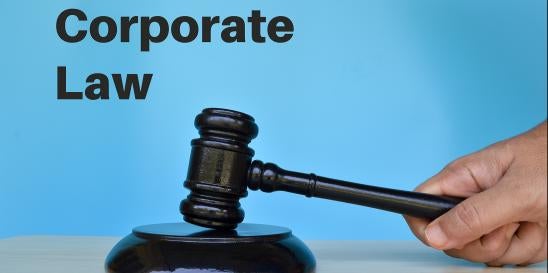In our prior alert over the summer, we highlighted the Delaware Supreme Court’s decision in Stream TV Networks, Inc. v. SeeCubic, Inc., 279 A.3d 323, 329 (Del. 2022) (“Stream TV”), which held an insolvent corporation could not consensually “toss the keys” to its secured creditors in an out‑of‑court restructuring approved by the board of directors without the consent of the “out of the money” shareholders, because the transfer was a consensual sale of all or substantially all of the corporation’s assets.[1] The decision was based on Section 271 of General Corporate Law of the State of Delaware (“DGCL”), requiring a shareholder vote for a sale of all or substantially all of a corporation’s assets. Stream TV considered whether there was an “insolvency exception” from Section 271’s shareholder approval requirement and held that “a common law insolvency exception, if one ever existed in Delaware, did not survive the enactment of Section 271,” and that, accordingly, “there is no Delaware common law ‘board only’ insolvency exception under Section 271.” The decision (which we disagreed with as a policy matter) had significant implications for secured creditors seeking to implement out‑of‑court restructurings by giving “out of the money” shareholders a veto right to use as leverage in negotiations. The Stream TV decision also impaired the ability of a secured creditor to use the voting proxy in its pledge agreement to implement a restructuring with a newly appointed independent board of directors. By frustrating the lenders’ out‑of‑court playbook, Stream TV (we predicted) would needlessly increase the restructuring costs to be borne by secured lenders by forcing parties to use Chapter 11 as a means to effectuate a change of control transaction, where the very same transaction could be consummated more efficiently on an out of court basis.
The Delaware Legislature responded by enacting legislation to codify the “insolvency exception” that Stream TV found did not presently exist in the common law. Specifically, Section 272(b) of the DGCL was amended to add a new “safe harbor” provision for the sale, lease or exchange of collateral without shareholder consent. As explained below, the amendment provides material benefits for secured creditors, but (unfortunately) the statute also affords corporations a path to “opt out” of the safe harbor (thereby eliminating those newly‑added benefits).
Here are four key takeaways from the new Delaware statute.
- New Section 272(b)(1) provides that shareholder approval is not required for a non‑consensual sale of collateral when the “secured party exercises its rights” under the law governing the security agreement or mortgage or other applicable law, including Article 9 of a Uniform Commercial Code. This section would cover an Article 9 public or private foreclosure sale. This is not a material change in the law and shareholder approval was not required under Delaware law for an Article 9 public or private foreclosure, because it is a non‑consensual secured creditor remedy and thus not considered a “sale” triggering shareholder consent rights under Section 271.[2]
- In addition, new Section 272(b)(2) provides that shareholder approval is not required for a consensual sale of collateral by the corporation to the secured party or a third party that results in a full or partial debt forgiveness; provided thatthe collateral’s “value” is less than the amount of debt eliminated or reduced. This section covers an Article 9 strict foreclosure or a consensual transaction in lieu of a strict foreclosure. Section 272(b) does not require a specific method for valuing collateral. Moreover, Section 272(b)(2) provides that there is no presumption of solvency merely because the transaction involves consideration to the corporation (beyond debt forgiveness) or to existing equity. In other words, a deal structured with a “tip” to existing equity will not alone cause the transaction to fall outside the safe harbor.
- Newly added Section 272(c) provides further protection by providing that, after a transaction is consummated, it cannot be unwound for failure to satisfy the “value” test in Section 272(b)(2) where the buyer provided value (including debt forgiveness) and acted in good faith. Section 272(c) will eliminate post‑closing litigation where old equity threatens to or actually tries to challenge value using the benefit of hindsight.
- Finally, under new Section 272(d), Delaware corporations can opt‑out of the safe‑harbor (and thus require shareholder consent for a sale of all or substantially all assets as required by Section 271) by express language in the certificate of incorporation added after August 1, 2023. Thus, corporations have the power to undue all of the benefits of the newly‑enacted statute to the detriment of secured lenders. There are a number of options for secured lenders to consider to mitigate the impact of such a provision prior to closing a transaction.
The safe‑harbor for the enforcement of secured creditor rights is a welcome development for secured creditors of insolvent[3] corporations. We believe that the trend for out‑of‑court restructurings will continue (particularly for stressed companies with a broken balance sheet as opposed to a broken business) and Section 272 will be a valuable tool to get deals done in the conference room instead of the courtroom. That said, the “opt out” right could provide an exception that swallows the safe‑harbor entirely.[4]
[1] See our prior alert.
[2] UCC § 9‑617, Comment 2 (“… a buyer at a foreclosure sale does not meet the definition of ‘purchaser’ in Section 1‑201 (the transfer is not, vis‑a‑vis the debtor, ‘voluntary’).”)
[3] The amendments to Section 272 do not use the term “insolvent.” We use the term as a short‑hand reference to a situation where the transferred collateral’s value is less than the amount of secured debt to be reduced or eliminated.
[4] When conducting diligence on the front end of a new loan, private credit lenders should take care to ensure that a prospective borrower or guarantor has not exercised its right to opt out of the safe harbor and that it may not do so while the loan remains outstanding.








 i
i


